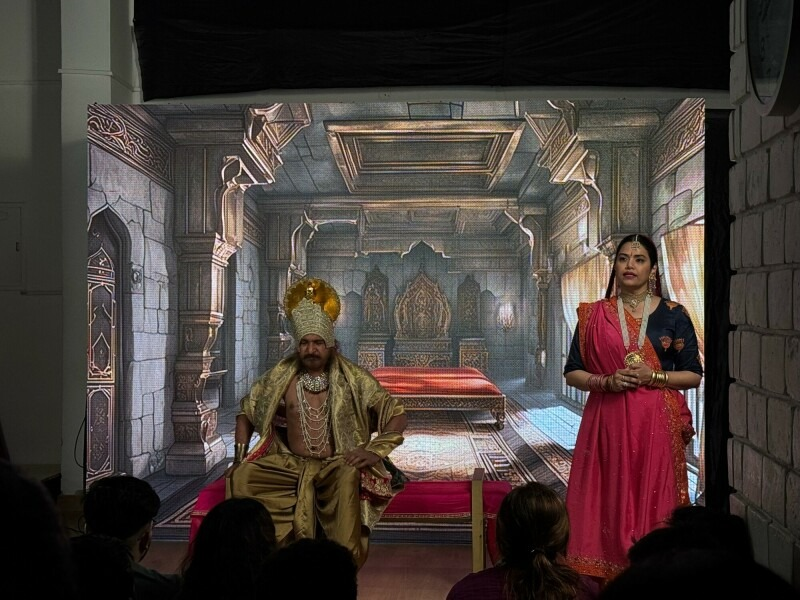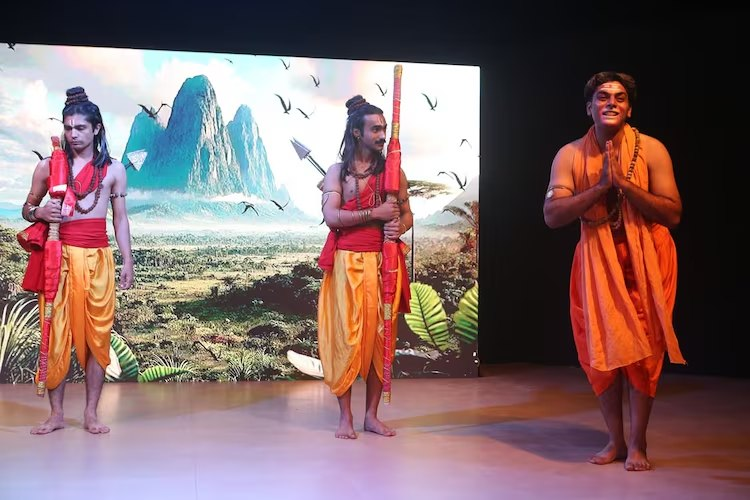A city more often associated with strife and silence rang unexpectedly with chants of “Jai Shri Ram”, not in protest, but in performance.
As tensions between India and Pakistan slowly fade into the background, Karachi, Pakistan’s largest city, startled many with an unexpected spectacle: a three-day Ram Navami celebration in the form of a theatrical retelling of the Ramayana, staged at the prestigious Karachi Arts Council from July 11 to 13.
In a nation where even the name “Karachi” has, at times, triggered vandalism of Indian businesses bearing its name, this quiet cultural rebellion challenged the narrative through art, not anger.
Presented by local theatre group Mauj, the production unfolded over an hour and a half, weaving together more than a dozen dramatic scenes from the Hindu epic. AI-generated visuals transformed the stage into Ashoka Vanas, royal courts and ocean crossings, delivering a spectacle as visually mesmerising as it was surprising.
At the centre stood Ashmal as Ram and Rana Kazmi as Sita, the latter also serving as the show’s producer. The visionary behind it all was Yogeshwar Karera, a soft-spoken thirty-year-old director who begins conversations by stating, “I am a Hindu.”
A graduate of Pakistan’s National Academy of Performing Arts, Karera explained, “The pain of Partition hasn’t faded. But Ramayana? It belongs to me as much as to anyone in India. I just wanted to reclaim the story that shaped my childhood.”
Over three consecutive nights, hundreds of Karachiites, many witnessing the Ramayana for the first time, watched in quiet awe. Hindi, gently softened for Pakistani ears, flowed from performers whose only exposure to the language came from Bollywood and old Doordarshan shows.
“Except for me and the two musicians playing the tabla and harmonium, both Hindus, every single member of the cast and crew was Muslim,” Karera said, smiling. “But faith wasn’t a factor. The story pulled us all in.”
Also read: Hundred retellings of Heer — from love to anger

Ravana was played by Samhaan Ghazi, Lakshman by Waqas Akhtar, Dashrath by Aamir Ali, Hanuman by Gibran Khan, and Kaikeyi by Sana Toha. Monika Ahmed’s haunting live vocals framed the production’s most emotional moments.

Was it merely an act of interfaith diplomacy?
Rana Kazmi was quick to reject the suggestion. “Nothing was forced. The Ramayana isn’t just a scripture, it’s an archetype. It’s the battle between good and evil, a mirror held up to the soul. The moment Yogeshwar shared the vision, we all knew this was something we had to do.”
The production marked a rare triumph, not only of performance but of shared heritage. It evoked memories of earlier cultural moments in the city: Mehreen Jabbar’s Ramchand Pakistani in 2008, which explored the plight of a Dalit Hindu boy imprisoned in India; or her 2019 serial Dil Kya Kare, which quietly embedded Rabindra Sangeet into Pakistani primetime.
“The Ramayana is mythical,” Karera reflected. “But its relevance is painfully real, whether in India or Pakistan. Whether you're in Ayodhya or in Karachi.”
For three surreal nights in July, that relevance was not merely witnessed, it was sung, danced, and believed in. Karachi didn’t just watch Ramayana. It lived it.




